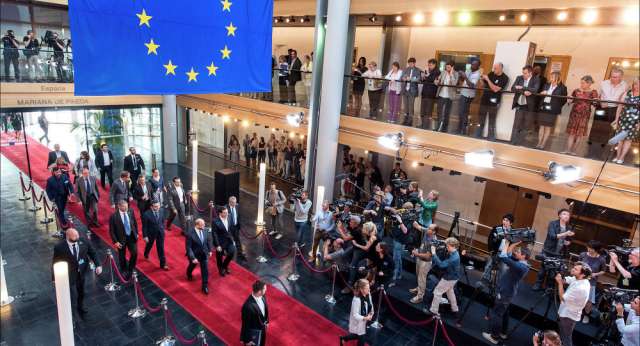According to papers seen by The Times of London, 200 offices are also to be built to house MEPs from countries that have not even joined the EU. Meanwhile, an increase in expenses for members of the European Parliament means that many lawmakers are expanding their own offices and need space for more staff.
Only four years ago, in 2011, a European Parliament committee approved a massive spending spree on property — to create more office space for MEPs and staff. The Parliament`s Budget Committee voted through a spending package of more than UD$156 million, to cover the building of one brand new office block close to the Parliament chamber in Brussels and the purchase of another. A further US$18 million was due to be spent to buy and renovate a building near the Strasbourg Parliament which currently belongs to the Council of Europe.
`No Longer Up to the Job`
However, according to a document signed by Klaus Welle, the parliament`s administrator:
"Week to week the building`s facilities are becoming ever less suited to the needs of a modern parliament and its poor environmental performance can no longer be justified."
However, the plans have been met with anger. Ashley Fox, leader of the Conservative MEPs, said that he could see nothing wrong with the parliament`s main building in Brussels.
"The Houses of Parliament in London are 150 years old and we are only now having a serious debate about a major refurbishment. The European version has been here only 20 years or so but someone has decided it is no longer up to the job."
The 2014 EP budget amounts to US$1,960 (€1,756bn) of which 35% is for staff expenses, mainly salaries for the 6000 officials working in the General Secretariat and in the Political Groups. About 27% of the 2014 budget is dedicated to MEPs` expenses, including salaries, costs for travel, offices and the pay of personal assistants.
Expenditure on Parliament`s buildings accounts for 11% of the 2014 budget. It covers rent of buildings, construction, maintenance, security and running costs in the three main places of work — Brussels, Luxembourg and Strasbourg — as well as for its information offices in the 28 Member States.
More about:















































